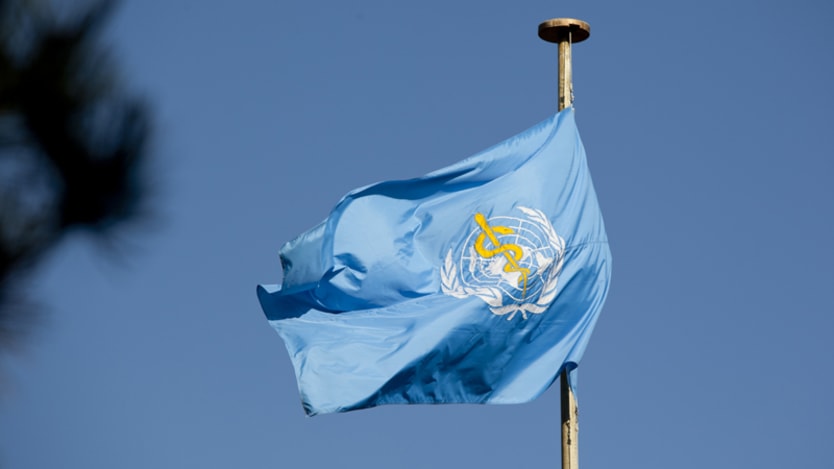
Directly off the World Health Organization’s home page is a list of over 280 health topics addressed by the agency. They cover a number of diseases you would expect, including HIV/AIDS, tuberculosis, yellow fever, dengue, as well as a number of conditions you might not, such as hearing loss, sunburn, passive smoking and cellphones.
It’s these latter topics that prompt the question: Should the WHO split its online presence in two? Would it make sense for WHO to create a second website devoted to topics on personal health and wellness, in addition to the broader, and in many ways more serious, global health topics of its current site?
No matter what the topic, it’s always difficult for an organization (and its website) to have both scientific and popular credibility simultaneously. That’s probably particularly true when it comes to matters of health, a topic that is as complex as it is personal. The public and researchers use different vocabularies, are seeking different levels of certitude, and are interested in applying what they learn in very different ways as well.
If WHO were to divide and differentially curate its information between two different sites, one attuned for the general public and personal health, and another to researchers and practitioners of public health, it might find more interest, acceptance, and use from both audiences.
A change of style
WHO’s current site does not have a very contemporary appearance. The home page is quite text-heavy, with over 1,700 words (roughly a page and a half of single-spaced text) and over 50 links (not including navigation). A new site could employ a more engaging format with fewer stories, larger graphics, scrolling pages, and more. A site like this might be more appealing to younger viewers, precisely those to target for changes in behavior as opposed to those in need of treatment.
This new site might look less descriptive — fewer statistics and programs — and far more prescriptive and proscriptive — do this or don’t do that. It would use less technical terminology and more commonly used words: “Cut” instead of “laceration” and “shortness of breath” instead of “dyspnea.” A page dedicated to the general public could focus more heavily on the positive benefits of individual behavioral change as opposed to the advances of collective public health.
In tone and format, this second web page could be more story-based, to encourage readers to associate with the experience of other individuals — and then emulate positive personal health habits. It might do best as oriented primarily toward younger adults — people who are comfortable gathering advice on the web and who are for the first time in their lives the principal agents of their own health.
Why WHO?
Why would this approach — hosting separate websites for public health and personal health — work well for WHO?
WHO already has a robust social media following, probably second only to UNICEF, in the field of global health. The current site receives about 200,000 hits every day and is the eighth most visited health-related site in the world.
National health sites including those of the U.S. Centers for Disease Control and Prevention, France’s L’Agence nationale de sécurité du médicament et des produits de santé (L’ANSM) and the United Kingdom’s National Health Service take a portal approach, subdividing their core site across multiple diseases rather than hosting separate sites. This concentrates their content but dilutes the search engine optimization for these topics.
By contrast, a new WHO site that is more tightly focused on a smaller subset of health topics could use search engine optimization to attract more web traffic. Some 72 percent of internet users look for health information online and 77 percent of them begin their research on search engines, according to a September 2012 Pew survey.
Amid a rising global distrust in institutions, collectively referred to as “the establishment,” a new website could also help WHO open a new page with the public. Operating for 68 years and a special agency of the United Nations, with a budget of more than $4 billion, WHO is certainly part of the establishment. Making its information more accessible and open might be a path to such wider acceptance.
Of course, the obvious objection is that a second site would require additional resources for programming, editorial and design. Even if the new site’s content were just less technically worded articles rewritten from the main site, care would have to be taken to make sure that the new, summarylike content was not misleading or incomplete. Nor are there guarantees that a new site would catch on with the public or that it wouldn’t weaken the organization’s credibility in the eyes of a more serious, professional audience.
Taking the plunge
I think this experiment is worth the risk: Do it. Leave the current site unchanged, but create the new site and carefully track its influence and affect, not just its page views. WHO’s mission is so critical that arguably it actually has an obligation to try new approaches and become more effective.
If the new site fails, a hit to credibility, if any, would be minimal and brief. If it succeeds, WHO should marry this effort with a more robust social media campaign and wider participation in events that reach audiences perhaps more concerned with their own health than with global health.
As Dr. Sania Nishtar, one of the six candidates vying to become the new director-general of WHO in July, put it in her “New Vision for WHO and 10 Pledges for Action”: “I believe there is great potential in harnessing digital technology and social media for health behavior change, especially when coupled with knowledge management and the right partnerships.”
Join the Devex community and access more in-depth analysis, breaking news and business advice — and a host of other services — on international development, humanitarian aid and global health.








